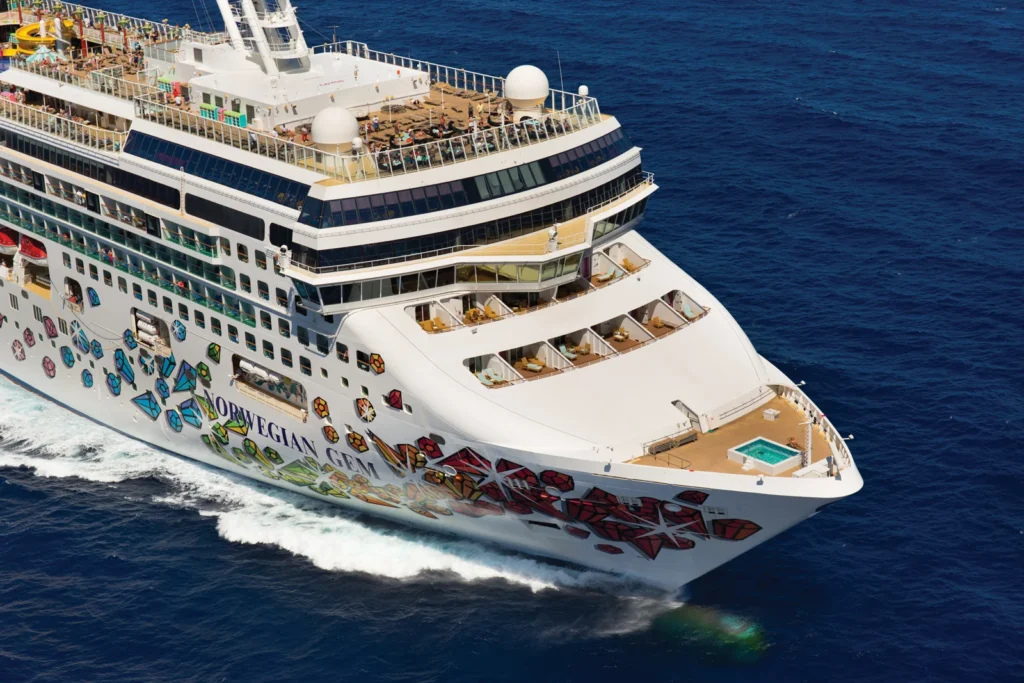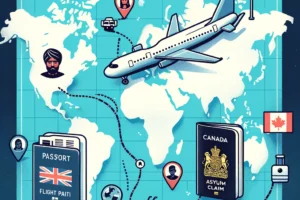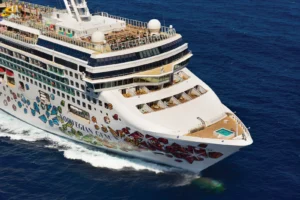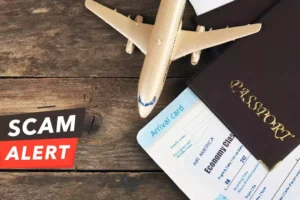- How to Avoid Common International Shipping Scams
 As global trade continues to grow, international shipping has become a routine part of doing business — but with that convenience comes risk. Scammers are increasingly targeting cross-border shipments, preying on individuals and companies unfamiliar with the complexities of international logistics. Whether you’re a business owner or someone making a personal purchase from abroad, being…
As global trade continues to grow, international shipping has become a routine part of doing business — but with that convenience comes risk. Scammers are increasingly targeting cross-border shipments, preying on individuals and companies unfamiliar with the complexities of international logistics. Whether you’re a business owner or someone making a personal purchase from abroad, being… - Is that free cruise really free?
 A free cruise or all-inclusive getaway might sound like the dream escape you’ve been waiting for — but before you start packing your bags, it’s important to read the fine print. Just because something is labeled as “free” doesn’t mean it won’t come with strings attached. Many so-called free travel offers come loaded with hidden…
A free cruise or all-inclusive getaway might sound like the dream escape you’ve been waiting for — but before you start packing your bags, it’s important to read the fine print. Just because something is labeled as “free” doesn’t mean it won’t come with strings attached. Many so-called free travel offers come loaded with hidden… - Marine Transport Mysteries: Navigating the Waters of Shipping Scams
 The vastness of the ocean mirrors the depth of deceit found in marine transport scams, a realm where cargo overcharging and phantom ship hires lurk beneath the surface, waiting to ensnare the unwary. This blog post delves into these murky waters, offering insights to help you steer clear of fraudulent activities and ensure your maritime…
The vastness of the ocean mirrors the depth of deceit found in marine transport scams, a realm where cargo overcharging and phantom ship hires lurk beneath the surface, waiting to ensnare the unwary. This blog post delves into these murky waters, offering insights to help you steer clear of fraudulent activities and ensure your maritime… - The Financial Losses Incurred as a Result of the Maritime Shipping Container Fraud
 Deceptive online platforms selling shipping containers are defrauding consumers in Western Australia, resulting in a loss of nearly $55,000 among scam victims over the last four months. The losses incurred in 2022 have already surpassed the total reported for the entire year of 2021. Additionally, some individuals have fallen prey to a fraudulent container leasing…
Deceptive online platforms selling shipping containers are defrauding consumers in Western Australia, resulting in a loss of nearly $55,000 among scam victims over the last four months. The losses incurred in 2022 have already surpassed the total reported for the entire year of 2021. Additionally, some individuals have fallen prey to a fraudulent container leasing… - Water transport scam
 Water transport scam is a type of fraud that involves the misappropriation of funds from government-funded water transportation projects. The scam involves the misappropriation of funds from the government, usually by corrupt officials, who use the funds for personal gain. The scam is usually perpetrated by creating fake contracts, submitting false invoices and other fraudulent…
Water transport scam is a type of fraud that involves the misappropriation of funds from government-funded water transportation projects. The scam involves the misappropriation of funds from the government, usually by corrupt officials, who use the funds for personal gain. The scam is usually perpetrated by creating fake contracts, submitting false invoices and other fraudulent…
The Water Transport Scam is a term used to describe a series of fraudulent activities that have been taking place in the water transport industry in India. The scam involves a network of corrupt officials, politicians and businessmen who have been exploiting the lack of transparency and regulation in the water transport sector.The scam involves the misappropriation of public funds, the creation of shell companies, and the awarding of contracts to companies that have no expertise in the field. It also involves the manipulation of bids in tenders, the use of inflated contracts, and the diversion of money to companies owned by politicians or their family members.
The scam has been going on for many years, but only recently has it been exposed and brought to light. The government has taken some action to address the issue, but it is yet to be seen how effective these measures will be in combating the problem. There is a need for better regulation and oversight of the sector, as well as increased transparency and accountability.
The water transport scam is a term used to refer to the illegal activities that take place in India’s large network of waterways. It is estimated that more than 20 million people depend on India’s large network of waterways for their livelihoods. This includes small-scale fishermen, boatmen, and even larger-scale businesses. Unfortunately, this network of waterways has become a hub for corruption and illegal activities. The water transport scam is largely attributed to the lack of proper regulation and enforcement in India’s waterways. This has created an environment where unscrupulous individuals can take advantage of the lack of oversight. This includes overcharging for goods and services, providing substandard services, and engaging in illegal activities such as smuggling.
The water transport scam has been further exacerbated by the lack of infrastructure and technology. Many of the waterways are not well-maintained, which can make it difficult for law enforcement officials to monitor activities. This has allowed criminals to carry out their activities with relative impunity. In addition, the water transport scam has been facilitated by the lack of transparency and accountability in the system. This has allowed for widespread misappropriation of funds and resources. The water transport scam is not just a problem in India, but one that is present throughout the world. It has been estimated that the global water transport industry is worth more than $300 billion.
This is a significant amount of money, and it is essential that governments and law enforcement agencies take steps to ensure that the system is regulated and monitored. This could include introducing better enforcement mechanisms, such as monitoring technology and increasing transparency. The water transport scam is an issue that needs to be addressed in order to protect the livelihoods of those who rely on this industry. It is also essential to ensure that the system is fair and free of corruption.
- Other scams in water transport involve stolen or fraudulent documents or even ransom demands. These scams may involve the use of fake documents such as boat registration papers, or the theft of valuable items such as fishing gear or navigational equipment. When these items are stolen, criminals may demand a ransom from the victim in order to return the items.
- Another type of scam in water transport involves the use of false advertising. In this type of scam, a customer is offered a low price for a service, such as a boat tour, but when they arrive at the destination,
- Scams in water transport are often perpetrated by individuals or groups who use deceptive tactics to take advantage of unsuspecting victims. These scams can range from simply overcharging for services to more elaborate schemes that involve stolen property, fraudulent documents, and even ransom demands.
- One of the most common scams in water transport is known as the “bait and switch.” In this type of scam, a customer is offered a low price for a service, such as a boat rental, but when the customer shows up to make the purchase, they are presented with a higher price. This type of scam is usually perpetrated by unscrupulous rental companies or individuals who are looking to make a quick profit.





